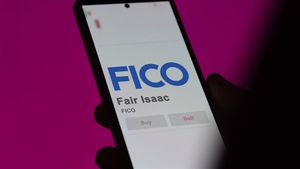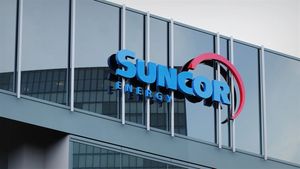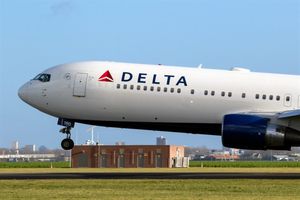New York, Sept. 09, 2024 (GLOBE NEWSWIRE) -- The Muscular Dystrophy Association (MDA) announced today a new research program called MDA Kickstart for Ultra-Rare Neuromuscular Disease. The MDA Kickstart program is a collaborative in-house venture towards gene therapy development for selected ultra-rare genetic conditions, which may not have large commercial value. The program was developed as a strategy and operational solution to de-risk development of gene therapies for ultra-rare neuromuscular diseases. It aims to bridge the translational gap between early academic science, regulatory approval, access, and use.
“The Muscular Dystrophy Association recognizes that many neuromuscular diseases may be too rare to be commercially attractive for therapy development by drug companies. The new MDA Kickstart Program is an in-house gene therapy program that will partner with academic, corporate and community groups to move these therapies forward by creating economies of scale and improving valuation of these therapies. The MDA Kickstart program will help ensure that patients with ultra-rare forms of neuromuscular disease are not left behind in the era of genetic medicines and can also experience the potential benefits of gene therapies,” said Sharon Hesterlee, PhD, Chief Research Officer, MDA.
The selection of the first MDA Kickstart project was guided by external advisors consisting of academic and industry leaders in gene therapy, who reviewed candidate proposals and recommended a genetic condition with high unmet need and a high potential to benefit from a gene therapy approach. Gene replacement therapy delivered via adeno-associated viruses (AAV) has proven to be a feasible strategy to treat the underlying genetic cause of numerous neuromuscular disorders (NMDs). While there is expanding interest from industry to support translation studies for AAV-based gene therapies, these have been limited to more common NMD subtypes, with minimal commercial interest for indications affecting less than 1000 people in the US. MDA’s Kickstart program will seek to develop strategies and operational solutions to lower barriers and de-risk the translation of gene therapies for ultra-rare NMDs.
“Currently, an estimated 95% of rare disease patients do not have an approved therapy or one in development. We need a medical product paradigm that serves all patients regardless of rarity. The MDA Kickstart program is critical to form an ethical, efficient, and achievable solution to address the existing unmet need for people who are affected by ultra-rare neuromuscular diseases,” said Marina Kolocha, PharmD, PhD, PMP, Program Manager, MDA Kickstart program.
Collaboration with UC Davis
The first MDA Kickstart project, developed by Ricardo A. Maselli, MD, Professor, Neurology, Clinical Neuroscience, UC Davis, will focus on the development of a gene therapy for a form of Congenital Myasthenic Syndrome (CMS) caused by mutations in the CHAT gene, which encodes the enzyme Choline Acetyltransferase. This enzyme is required for the synthesis of the neurotransmitter acetylcholine, and when it is defective it disrupts the transmission of electrical signals from nerves to muscles, and results in muscle weakness and potentially fatal apnea. It is estimated that this condition affects about 200 children and adults in the United States and is characterized by muscle weakness and life-threatening episodes of respiratory arrest.
Dr. Maselli is a world-recognized expert in the field of congenital myasthenic syndromes. MDA will work with Dr. Maselli and team to build a platform for resources and personnel to generate a complete preclinical data package for submission to the FDA (US Food and Drug Administration) for a formal pre-IND (investigational new drug) meeting – an early milestone towards FDA-approval for a clinical trial.
“CMS due to CHAT mutations is a serious disease because of the risk of sudden, potentially fatal, episodes of respiratory arrest. When suspected, this disease can be easily diagnosed with blood genetic testing in newborns and infants. Unfortunately, in many cases, the disease remains undiagnosed until adulthood,” said Dr. Maselli.
The MDA Kickstart collaborative team consists of in-house, trusted vendors, and external experts to drive the chosen project towards the pre-IND milestone in collaboration with Dr. Maselli and other members of UC Davis, including their Stem Cell and Gene Therapy Cores with Jan Nolta, PhD, Director, and Office of Sponsored Research with Rajagopal Gururajan, IP Officer. Dr. Kolocha brings expertise in ultra-rare gene therapy development and regulatory expertise to act as program manager for the MDA Kickstart program.
“Our team at the UC Davis Institute for Regenerative Cures has worked closely with Dr. Maselli for the past decade and we have been continually impressed with their immense dedication to patients with rare neuromuscular disorders,” said Dr. Nolta, PhD, Professor, Institute for Regenerative Cures, UC Davis Health. “It is wonderful to now work with the impressive team at MDA to accelerate development of therapies into the clinic for these patients who have few other options.”
Manufacturing Partnership with Forge Biologics
MDA has partnered with Forge Biologics to provide AAV process and analytical development manufacturing services for the MDA Kickstart program. The program will utilize Forge’s platform process including its proprietary HEK293 suspension Ignition Cells™ and pEMBR™ adenovirus helper plasmid. All development and manufacturing activities will occur at the Hearth, Forge’s 200,000 square foot facility in Columbus, Ohio.
“Collaborating with the Muscular Dystrophy Association embodies our mission at Forge to help deliver potentially life-changing treatments to patients suffering from rare disease,” said John Maslowski, Chief Commercial Officer at Forge Biologics. “We are excited to support the MDA Kickstart Program and advance these critical projects to the next stage of development.”
FDA Rare Pediatric Disease Priority Review Voucher Reauthorization
MDA’s applications for Orphan Drug Designation and Rare Pediatric Disease Designation for this program are currently being reviewed by the FDA. Importantly, approval of the latter designation will affirm this program’s eligibility to receive a Rare Pediatric Disease Priority Review Voucher (PRV) upon FDA marketing approval. But this may only come to fruition if the Rare Pediatric Disease PRV program is reauthorized.
“MDA’s Kickstart program, and our efforts to develop a gene therapy for Congenital Myasthenic Syndrome (CMS) caused by mutations in the CHAT gene, are the exact kinds of programs that rely on the Rare Pediatric Disease Priority Review Voucher incentivizing for-profit biopharmaceutical companies to bring these therapies to market” said Paul Melmeyer, Executive Vice President, Public Policy and Advocacy, MDA. “This is why the Rare Pediatric Disease PRV program must be extended beyond September 30, and a long-term reauthorization must pass by the end of the year. We encourage our community to join us in pushing for this reauthorization here.”
About Muscular Dystrophy Association
Muscular Dystrophy Association (MDA) is the #1 voluntary health organization in the United States for people living with muscular dystrophy, ALS, and over 300 related neuromuscular conditions. For nearly 75 years, MDA has led the way in accelerating research, advancing care, and advocating for the support of our families. MDA's mission is to empower the people we serve to live longer, more independent lives. To learn more visit mda.org and follow MDA on Instagram, Facebook, X, Threads, TikTok, LinkedIn, and YouTube.
About UC Davis Institute for Regenerative Cures
UC Davis is playing a leading role in regenerative medicine, with nearly 150 scientists working on a variety of stem cell-related research projects at campus locations in both Davis and Sacramento. The UC Davis Institute for Regenerative Cures, a facility supported by the California Institute for Regenerative Medicine (CIRM), opened in 2010 on the Sacramento campus. This $62 million facility is the university's hub for stem cell science. It includes Northern California's largest academic Good Manufacturing Practice laboratory, with state-of-the-art equipment and manufacturing rooms for cellular and gene therapies. UC Davis also has a Translational Human Embryonic Stem Cell Shared Research Facility in Davis and a collaborative partnership with the Institute for Pediatric Regenerative Medicine at Shriners Hospital for Children Northern California. All of the programs and facilities complement the university's Clinical and Translational Science Center and focus on turning stem cells into cures. For more information, click here.
About Forge Biologics
Forge Biologics, a member of Ajinomoto Bio-Pharma Services, is a hybrid gene therapy contract manufacturing and clinical-stage therapeutics development company, enabling access to life-changing gene therapies by bringing them from concept to reality. Forge’s 200,000 square foot facility, the Hearth, is headquartered in Columbus, Ohio, and houses 20 custom-designed cGMP suites with 200,000L of manufacturing capacity. Forge’s end-to-end, scalable plasmid and AAV manufacturing services include research-grade manufacturing, process and analytical development, cGMP manufacturing, fill and finish, and integrated regulatory support to help accelerate the timelines of transformative medicines for patients with genetic diseases. To learn more, visit www.forgebiologics.com.
Attachment

Mary Fiance, Vice President, Strategic Communications Muscular Dystrophy Association press@mdausa.org






